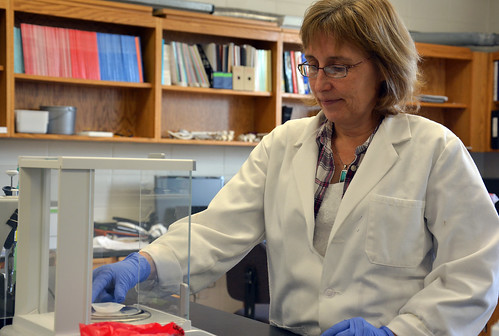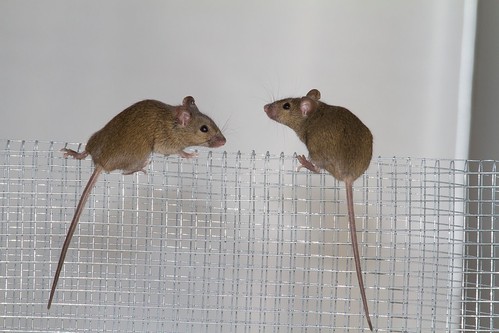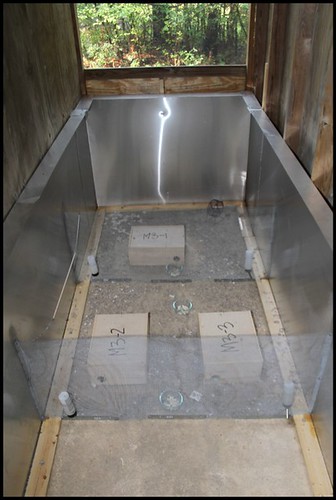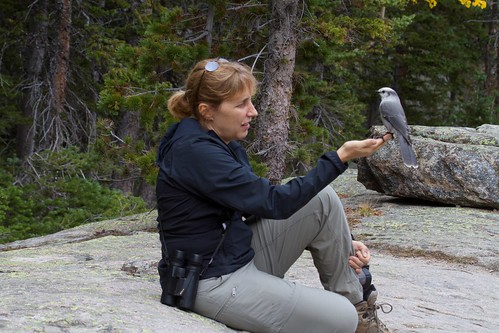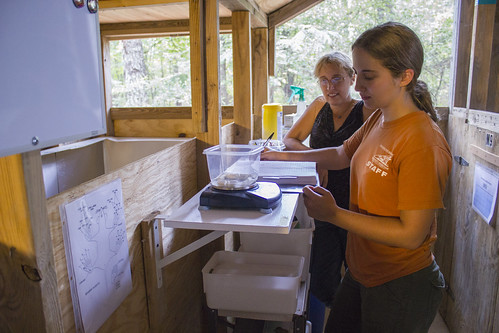COSAM News Articles 2015 June Hood receives NSF CAREER Award to study the effects of reproduction on aging.
Hood receives NSF CAREER Award to study the effects of reproduction on aging.
Assistant Professor Wendy Hood of the Department of Biological Sciences received a five-year, $1,032,465 CAREER Award from the National Science Foundation for her proposal, “Effects of mitohormesis on reproduction and longevity.” The Faculty Early Career Development, or CAREER, Program is a foundation-wide activity that offers the National Science Foundation's most prestigious awards in support of junior faculty who exemplify the role of teacher-scholars through outstanding research, excellent education and the integration of education and research within the context of the mission of their organizations.
“I’m honored to receive this award. CAREER awards are well named because the work funded by this award will create the foundation of my career in both research and teaching,” said Hood. “Not only does the award give my lab group funds for research assistantships, postdoctoral fellowships, equipment and supplies, but it also gives the opportunity to share our research with, and hopefully inspire, seventh and ninth graders throughout Alabama.”
Hood’s CAREER Award research project will focus on the effect reproduction has on the lifespan using the wild house mouse as a model. Hood notes that reproduction takes energy, and energy production causes the release of damaging reactive oxygen species, or ROS, within the mitochondria. ROS can damage cells and reduce the lifespan, however, several studies now show that damage from ROS is typically unchanged or even reduced in animals that reproduce compared to those that don't. Furthermore, Hood notes an emerging theory that suggests that low levels of exposure to ROS, as occurs during reproduction, not only lowers damage from ROS but may also protect cells from the cellular damage that contributes to aging. Hood will test this theory and work to determine whether ROS generated during house mouse reproduction protects against future ROS damage, determine how ROS damage and the performance of mitochondria change with reproductive experience and age, and characterize the relationship between reproductive experience and longevity in the house mouse.
“For decades researchers assumed that the negative relationship between reproductive output and longevity was driven by constraints on the use of energy. If our predictions are supported, our findings could change this doctrine,” said Hood.
In addition to research, Hood will use some of the funding to develop a lesson plan for seventh- and ninth-grade students on mitochondria. The goal is to test the mitochondria lesson in local schools in the region and eventually submit it to the Alabama State Department of Education for inclusion in the Alabama Science in Motion program.
Hood received both her doctorate and master’s degree from Boston University. She attended the University of California, Santa Cruz for her undergraduate education. She teaches comparative anatomy and a graduate course on current topics in the physiological ecology of reproduction.
Latest Headlines
-
02/12/2025
-
02/11/2025
-
02/10/2025
-
01/30/2025
-
12/03/2024

